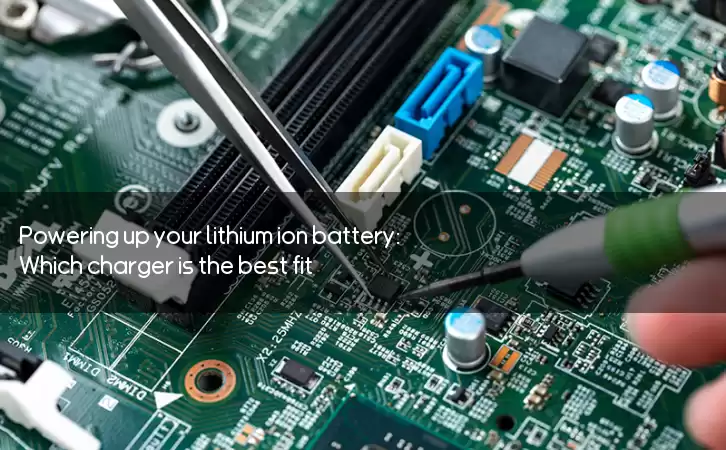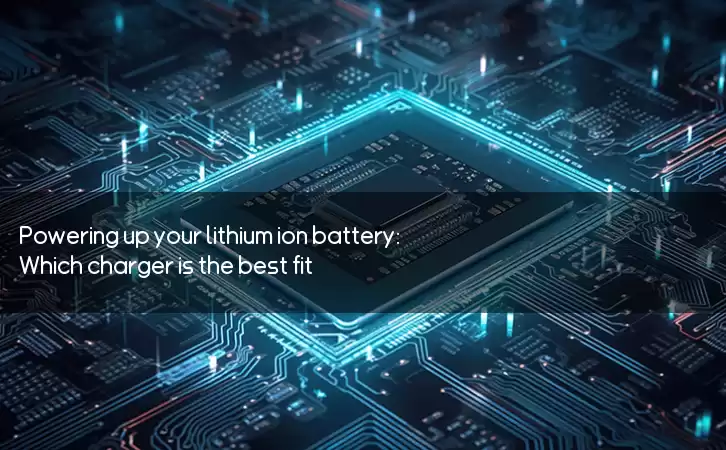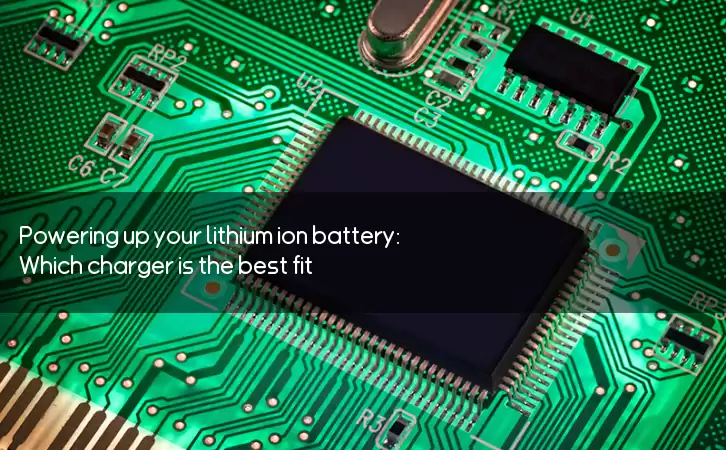Information Center
Powering up your lithium ion battery: Which charger is the best fit?
Published:2023-09-03 10:33:44 Author:Green WCND Views:101What chargers work with lithium ion batteries?

Lithium ion batteries are the most popular type of rechargeable batteries used today. With their high energy density, low self-discharge rate, and long lifespan, they are a popular choice for a wide range of electronic devices including smartphones, laptops, and cameras. But what type of charger is needed to effectively recharge a lithium ion battery?

First, it’s important to note that not all lithium ion batteries are created equal. Different lithium ion batteries have different charging requirements based on their size and chemistry. Before purchasing a charger, it’s important to know what type of lithium ion battery you have and what charging specifications it requires.

In general, lithium ion batteries can be recharged using either AC or DC charging. AC charging is typically done through a wall adapter while DC charging is done through a USB port or car charger. Both AC and DC charging can be done using either a dedicated charger or by plugging the device directly into a power source.
When it comes to dedicated chargers, there are several types available. The most common types of chargers for lithium ion batteries include:
1. Standard chargers – These chargers are typically included with electronic devices and are designed to provide a slow, steady charge to the battery. They are often referred to as "trickle chargers" and can take several hours to fully charge a battery.
2. Fast chargers – As the name suggests, fast chargers are designed to recharge lithium ion batteries quickly. They are able to do this by delivering a higher current to the battery, which allows it to charge at a faster rate. However, fast chargers can also cause the battery to heat up, which can reduce its lifespan over time.
3. Smart chargers – Smart chargers are designed to automatically monitor and adjust the charging process based on the battery’s needs. They are able to detect when the battery is fully charged and will stop charging to prevent overcharging. Smart chargers can also detect when the battery is too hot or too cold and will adjust the charging rate accordingly.
It’s important to note that not all lithium ion batteries can be charged using a fast or smart charger. Before using one of these chargers, it’s important to check the charging specifications for your specific battery to ensure that it is safe to use.
In addition to dedicated chargers, lithium ion batteries can also be charged using USB ports or car chargers. These chargers are typically not as powerful as dedicated chargers and may take longer to charge the battery, but they can be a convenient option when on-the-go.
In conclusion, lithium ion batteries can be recharged using a variety of chargers including standard chargers, fast chargers, and smart chargers. Before purchasing a charger, it’s important to know what type of lithium ion battery you have and what charging specifications it requires. While fast and smart chargers can be more convenient, it’s important to ensure that they are safe to use with your specific battery to prevent damage or reduced lifespan.
Power Adapter Design and Customization Guide for Portable Electric KettlesI. Common Design Types for Portable Electric Kettle Power AdaptersPortable electric ke···
I. Common Design Types of Power Adapters External Independent Type (Most Common) Design: A standalone adapter (e.g., "black brick") connected to the p···
Handheld Vacuum Cleaner Power Adapter Selection GuideIntroductionHandheld vacuum cleaners have become a mainstream tool for household cleaning due to their port···
Drill Power Adapter Selection Guide.drill-container { font-family: Arial, sans-serif; line-height: 1.6; max-width: 800px; margin: 0 auto; padding: 20px; } .dril···





